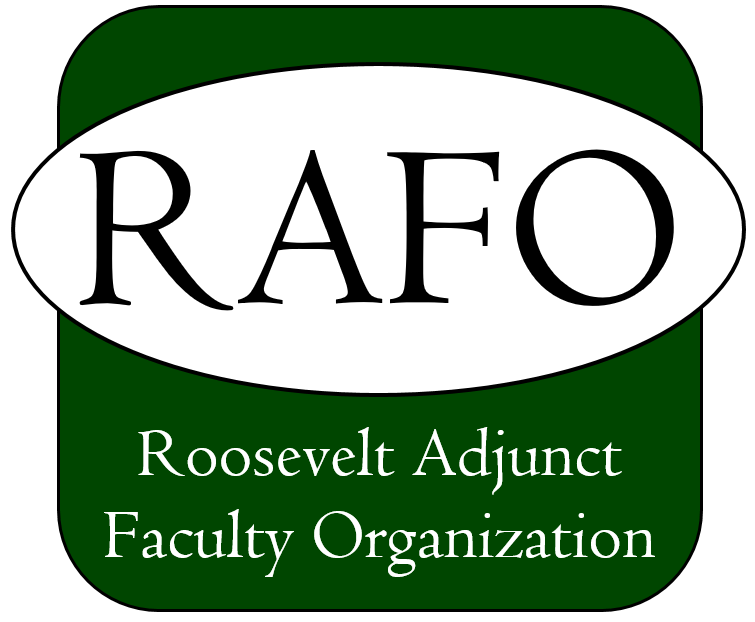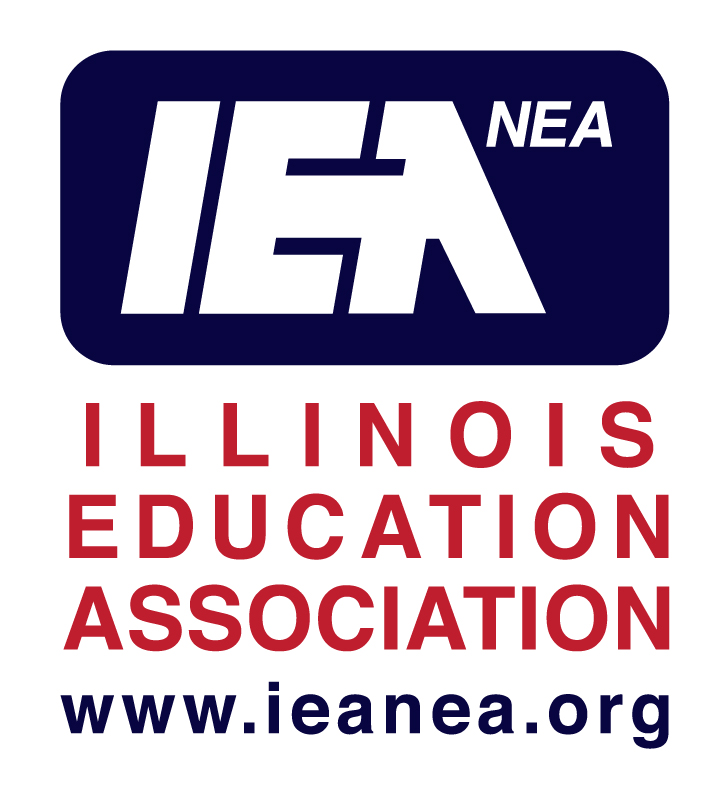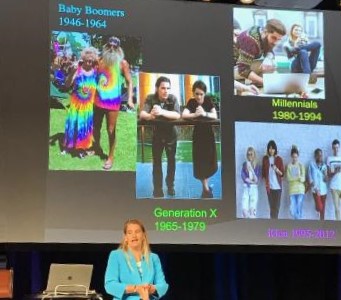 RAFO sponsored three adjunct faculty members to attend the Writing on the Edge 2019 Conference held on September 21 at the College of DuPage. The conference theme was “iGen: Reaching the Smartphone Generation in the Classroom.” The term iGen refers to the first generation spending their adolescence with smartphones. It is important to note that new strategies and new ways to engage this unique generation must be created.
RAFO sponsored three adjunct faculty members to attend the Writing on the Edge 2019 Conference held on September 21 at the College of DuPage. The conference theme was “iGen: Reaching the Smartphone Generation in the Classroom.” The term iGen refers to the first generation spending their adolescence with smartphones. It is important to note that new strategies and new ways to engage this unique generation must be created.
Jennifer Wilson (RAFO president), Joe Fedorko (RAFO membership chair), and Ami Hicks (RAFO professional development chair) were able to attend this conference. Dr. Jean Twenge professor of Psychology at San Diego State University was the Keynote Speaker and talked about “why today’s Super-Connected Kids are growing up Less Happy and Completely Unprepared for Adulthood” (see p. 5 COD WOTE 2019 brochure).
Jennifer Wilson presented “The Anxiety Epidemic: Five Tactics for Addressing Students’ Stress.” She discussed how alarming it is that college students experience chronic and episodic stress and offered five suggestions to help students manage their coursework and stress levels. She will be presenting this topic at RAFO’s upcoming Adjunct to Adjunct Conference in April 2020.
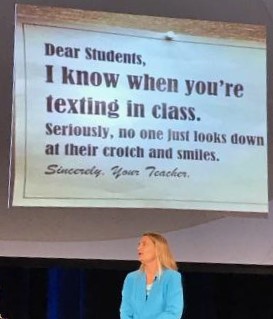 The executive committee encourages all adjunct faculty to participate in these professional development conferences and offers to pay the registration fee for those who would like to be more involved in their own professional growth. RAFO also encourages all adjunct faculty to present and share their knowledge and skills with other adjunct faculty. There will be additional opportunities to present and become involved in the upcoming Adjunct to Adjunct Conference in April 2020.
The executive committee encourages all adjunct faculty to participate in these professional development conferences and offers to pay the registration fee for those who would like to be more involved in their own professional growth. RAFO also encourages all adjunct faculty to present and share their knowledge and skills with other adjunct faculty. There will be additional opportunities to present and become involved in the upcoming Adjunct to Adjunct Conference in April 2020.
Our Roosevelt AAUP Chapter is inviting Hank Reichman, Ph.D. to campus on Tuesday Oct. 15 from 11:30am-12:30pm in AUD 309 / SCH 614 to speak on the topic “The Future of Academic Freedom,” which could also be subtitled “Can I tweet that?” All are welcome to attend.
https://sites.google.com/site/aauporganizingforchange/hank-reichman-bio
There will even be a limited supply of free copies of Dr. Reichman's book:
https://pwb02mw.press.jhu.edu/title/future-academic-freedom
For more info. contact Prof. Ken Mihavics.
Join Zoom Meeting
https://roosevelt.zoom.us/j/991612091
We received exciting news today! Roosevelt will be merging with nearby Robert Morris. RAFO will provide further information on how this will affect us in the coming weeks.
News Release from Roosevelt University
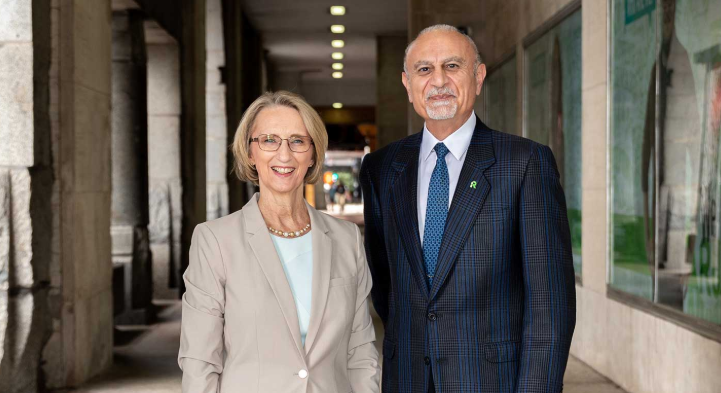
Roosevelt University president, Ali Malekzadeh, and Robert Morris University Illinois president, Mablene Krueger, announced that Roosevelt has submitted an application to the Higher Learning Commission (HLC) to make Robert Morris University Illinois a part of Roosevelt. The combined universities would continue under the name of Roosevelt University. The joining of the two universities would help them build on their historic missions that honor diversity, inclusion and access to education for all.
“We have been working with Robert Morris’ leadership team to ensure that it is a good fit for our respective students, faculty and staff,” said Malekzadeh. “Because of our complementary programs, and inclusive, yet distinct, missions of social justice and social equity, it is a perfect fit for both our universities’ students, faculty and staff. This partnership provides countless opportunities for everyone. We hope for this to be a model approach on how to successfully integrate two private universities.”
The newly expanded Roosevelt would continue to be nationally recognized as a catalyst for students from all walks of life to receive transformational learning experiences, preparing students to become socially conscious citizens who thrive in a diverse and changing world.
Hello Fellow Adjuncts,
I hope your year is going well!
If you are attending a workshop, a conference, a seminar to learn new skills, or are presenting at a conference, RAFO has a Professional Development Mini-Grant available to help with expenses. The application form is available here (click the download button in the upper right hand corner to download and edit the form), and the application deadline is October 16.
Review the application form and fill out the information requested. All proposals will be reviewed by the professional development committee, and you will be notified if it is approved and the amount that will be provided.
If you have any questions about the form or the grant itself, please do not hesitate to contact me.
Sincerely,
Ami Hicks
Ami Hicks, Ed.D., VP RAFO
RAFO, Professional Development
This email address is being protected from spambots. You need JavaScript enabled to view it.
In 2016, Providence, RI could boast about the positive turn away from gang related homicides when that number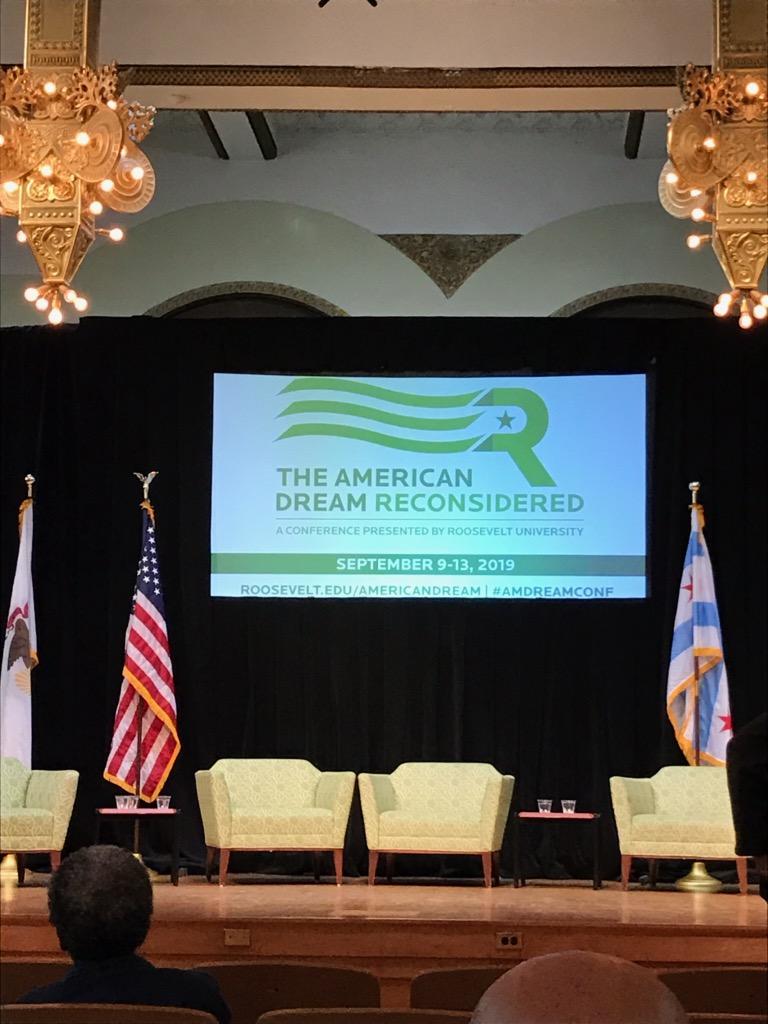 dropped to zero. According to , this model could be the goal the city of Chicago could strive for in lowering the violence in the Austin community. In the discussion titled “The New Architecture of Violence Reduction in Chicago,” the group of panelists of community leaders, outreach directors and a representative from the Chicago Police Department, explained the positive outcomes of having more community activism and involvement in lowering and eliminating violence. While 2016 saw the worst year of gun violence in the city, Ric Estrada, CEO of Metropolitan Family Services, indicated that joining efforts between the police, outreach groups and the community remains vital to serve the neighborhoods and address gang violence. All of the panelists shared their visions and philosophy of turning Chicago towards a positive model of rebuilding the relationships between the community and the outreach workers who are taking a best practices approach from Los Angeles. As a final note, Ernest Cato III, 15th district commander of the Chicago Police Department, stated communities must be partnered to make a positive change in their neighborhoods.
dropped to zero. According to , this model could be the goal the city of Chicago could strive for in lowering the violence in the Austin community. In the discussion titled “The New Architecture of Violence Reduction in Chicago,” the group of panelists of community leaders, outreach directors and a representative from the Chicago Police Department, explained the positive outcomes of having more community activism and involvement in lowering and eliminating violence. While 2016 saw the worst year of gun violence in the city, Ric Estrada, CEO of Metropolitan Family Services, indicated that joining efforts between the police, outreach groups and the community remains vital to serve the neighborhoods and address gang violence. All of the panelists shared their visions and philosophy of turning Chicago towards a positive model of rebuilding the relationships between the community and the outreach workers who are taking a best practices approach from Los Angeles. As a final note, Ernest Cato III, 15th district commander of the Chicago Police Department, stated communities must be partnered to make a positive change in their neighborhoods.
The 26th Franklin and Eleanor Roosevelt Distinguished Lecture was delivered by Kelly Clements, United Nations Deputy High Commissioner for Refugees. 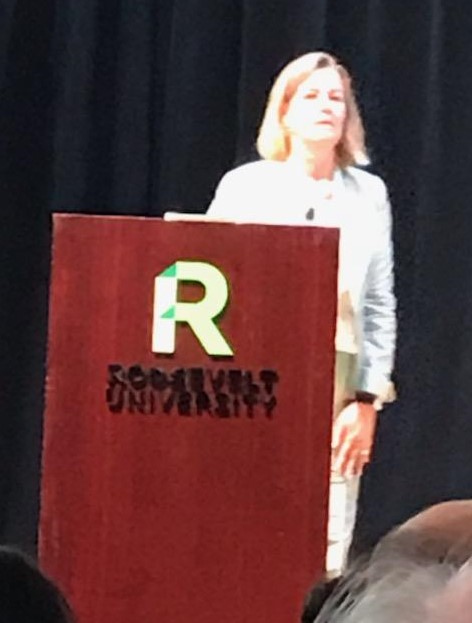 Clements opened her lecture with an extended narrative concerning a refugee from Venezuela named Sujit who faced a lack of services, food insecurity, theft, gangs, and constant exhortation before seeking a better future in Colombia, where she and her family moved to escape these issues. Currently, 70 million people are displaced around the world due to a combination of political turmoil, wars, and environmental crisis, but Clement uncovered many of the myths around refugees’ struggles and the international community’s goal of inclusion. Broken into four main components, Clement described how social inclusion, labor considerations plus education, financial support and digital documentation can assist refugees in finding support, security, and a new beginning for their futures. While Syria has the highest number of refugees seeking a new life, Libya has the worst procedures for addressing the refugee responses, detaining families and individuals in centers only to move them to another center rather than assist with permanent relocation. When one attendee addressed the call to action and asked what we could do for the refugees, Clement simply noted that becoming engaged by contributing to a person, a local church, or a community group working with refugees was an action to take or forwarding the view of refugees’ personal narratives as a human issue – not just a numbers game – are steps in the right direction.
Clements opened her lecture with an extended narrative concerning a refugee from Venezuela named Sujit who faced a lack of services, food insecurity, theft, gangs, and constant exhortation before seeking a better future in Colombia, where she and her family moved to escape these issues. Currently, 70 million people are displaced around the world due to a combination of political turmoil, wars, and environmental crisis, but Clement uncovered many of the myths around refugees’ struggles and the international community’s goal of inclusion. Broken into four main components, Clement described how social inclusion, labor considerations plus education, financial support and digital documentation can assist refugees in finding support, security, and a new beginning for their futures. While Syria has the highest number of refugees seeking a new life, Libya has the worst procedures for addressing the refugee responses, detaining families and individuals in centers only to move them to another center rather than assist with permanent relocation. When one attendee addressed the call to action and asked what we could do for the refugees, Clement simply noted that becoming engaged by contributing to a person, a local church, or a community group working with refugees was an action to take or forwarding the view of refugees’ personal narratives as a human issue – not just a numbers game – are steps in the right direction.
Page 17 of 31
